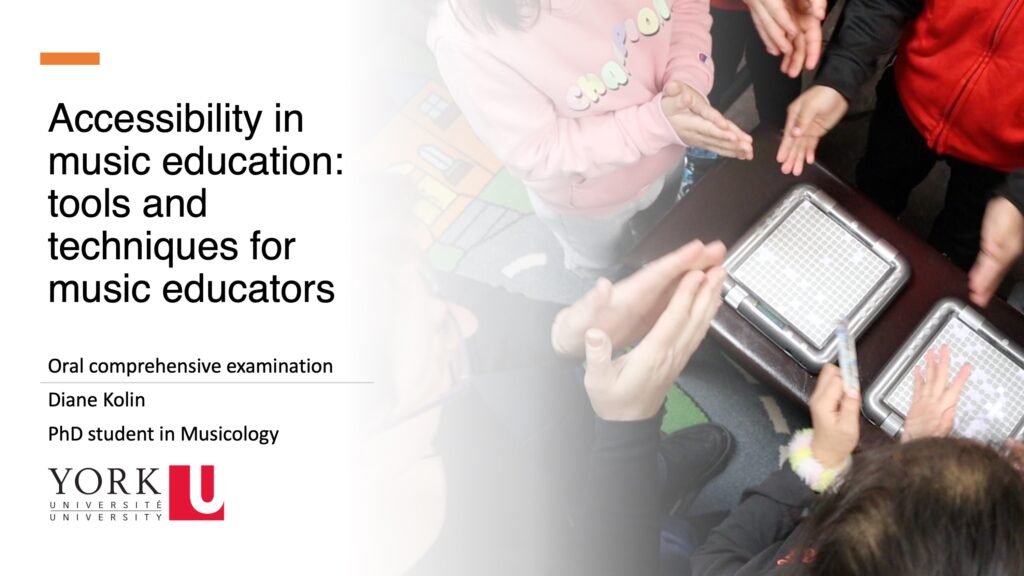Comprehensive exams are the last steps in a PhD student’s journey before being allowed to write a doctoral dissertation. I did my written comprehensive exam (a mini dissertation on a chosen topic agreed with the supervisory committee) in November about the impact of deafness on Ludwig van Beethoven’s piano sonata compositions. My oral comprehensive exam was on March 17, presenting a series of adaptive instruments and voice workshops I have organized in a music school, in relation to my research about professional musicians with disabilities. Though the written comprehensive exam is discussed privately between the supervisory committee and the student, the oral comprehensive exam is open to the public. It contains 1) a presentation part done by the student, 2) several rounds of questions from the committee, and 3) a decision of approval of the exam. Because it was attended by a fair number of people (via Zoom and in person), the committee decided to add an extra step and open the conversation to the audience for questions. My oral comprehensive exam was approved. I am now officially ABD (All But Dissertation), meaning that I am not a student anymore, but a candidate. I give myself two years to write the dissertation. I thank my committee for the time spent together, discussing both written and oral comp topics: Stephanie Martin, Amy Hillis, and Rachel da Silveira Gorman.
More about the oral comprehensive exam. Here was my title slide:

Abstract:
“Education follows society,” as Michael L. Mark states in his chapter entitled “Music Education History and the Future” in the anthology “Music Education, Navigating the Future” (2015). In music education, the methodologies employed by the teachers are in constant evolution with our society to improve accessibility, diversity and inclusion in class. However, students with disabilities frequently face ableism and lack of support because of the absence of options available to them to include students with special needs in traditional classrooms. Working with professional musicians with disabilities, I have often discussed with them the challenges they faced to continue their musical studies. It is usually thanks to one individual (a teacher, a parent, a friend) who was thinking out of the box that it was possible for them to find the proper adaptations and teaching/learning methods. This implies that teachers keep an open mind and take into account the abilities of their students. As part of a project in partnership between York University and CMST (Community Music Schools of Toronto), I have proposed a series of adaptive instruments and voice workshops to introduce young music students (4 to 13 years old) to different learning experiences in the classroom. These workshops allow teachers to learn new tools and techniques which might be applied in the future, and students to discover other ways of performing and learning music, with ASL and Braille music, new technologies, and traditional instruments used in a non-traditional way. In my presentation, I will give an overview of these workshops and demonstrate how these new tools and techniques can help improve music education for students with all abilities.
